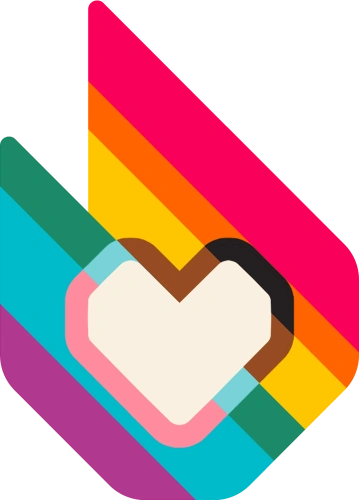Queer is an identifier for individuals and/or the community of people who are not heterosexual.[1][2] It can be used instead of (or in addition to) other identifiers of sexual orientation, such as lesbian, bisexual, or gay. Queer can also refer to gender identity or gender expression,[1] whether as a standalone term or part of another like genderqueer.[3] The "Q" in LGBTQIA+ and similar acronyms commonly means Queer.[1] As a reclaimed word, it has been used in fights for LGBTQIA+ rights and liberation[4] as an inclusive and sometimes defiant term. PFLAG[2] and GLAAD[1] are two of the organizations that recommend only using it for people who self-identify as queer because it has varying meanings and is not universally accepted.[1][2]
Etymology
Originating in Scottish in the 1500s, queer originally meant "strange," "odd," "peculiar," or "eccentric." In 1781, it grew to meant "appearing, feeling, or behaving otherwise than is usual". It began to be associated with homosexuality in 1922 as an adjective, and a noun in 1935.[5]
Community
History
We're here! We're Queer! Get used to it!
Rallying chant, Queer Nation
By the late 19th century, queer was gained a connotation of sexual deviance, and was typically used as a pejorative term in reference to feminine men or men who engaged in same-sex relationships. Throughout the 19th century and 20th century, the use of queer as an identity within the LGBT+ community varied.[6]
An early example of this usage by the LGBT+ community was by an organization called Queer Nation, which was formed in March 1990.[7] In June 1990, a leaflet was distributed by Queer Nation at a pride march in New York. It was signed anonymously as having been written by "Queers".[8] They explained the adoption of the label Queer in a paragraph:
- "Every gay person has his or her own take on it. For some it means strange and eccentric and kind of mysterious [...] And for others "queer" conjures up those awful memories of adolescent suffering [...] Well, yes, "gay" is great. It has its place. But when a lot of lesbians and gay men wake up in the morning we feel angry and disgusted, not gay. So we've chosen to call ourselves queer. Using "queer" is a way of reminding us how we are perceived by the rest of the world."[8]
There was a shift in the gay community in the early 2000s as queer identity was often associated with a radical political stance, particularly because it was reclaimed by queer individuals of color, gender non-conforming people, and others whose mere existence challenged the social norms. Some people disapprove of the use of queer as an umbrella term, citing the role it played in dividing the LGBTQIA+ community by political opinon, gender, age, class, and other major factors.[9]
Distinction
If the topic has similarities to another gender/orientation, use this section to highlight the differences between them.
Controversy
The word "queer" has been used as a slur against non-heterosexual people. Although it has since been reclaimed by queer people, acceptance of the term is not universal.[1]
Perceptions and Discrimination
This section focuses more on the specific kinds of discrimination and oppression that these people may face. Examples would be mentioning systematic transphobia and non-binary erasure on the page for agender, mentioning rates of mental health issues in this group, etc.
Media
This section should be used to elaborate on the portrayal and representation of this identity in various forms of media, which can include a listing or links to various artists or movies, series, etc.
Public figures
- bell hooks (as "queer-pas-gay" = "queer, not gay")
- Daniela Sea
- Ella Hunt
Resources
| Stub | |
| This article is a stub. You can help LGBTQIA+ Wiki by expanding it. |
References
|
